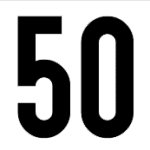For better or worse, I tend to spend a lot of time mentoring and advising people and was asked twice today what I read to be knowledgable, or put another way, where the hell to even start in understanding startup and venture capital (They see tech startup as the future) so I thought I would knock out a quick blog on just that point.
It has to be said, when I quit banking I seriously had no clue what I was doing and other than direct experience (The best), a lot of what I know has come from large amounts of consistent, daily consumption. I strongly believe the single greatest investment anyone can make is in themselves, and their knowledge base. I keep becoming more aware of how little I know as I learn, but that’s a positive thing that is self-reinforcing.
Here are the sources of information that I regularly read (Or did since 2008) and some of the manners in which I discover quality reading now.
My top 10 pieces of general advice to get smarter about startup
- Be consistent: Knowledge is a marathon not a sprint. Don’t burn yourself out, there will always be more to read. Key is to keep it up.
- Read every day: Ensure you learn each and every day and that includes the weekend (You don’t have one)
- Lower your expectations: You will not be the oracle in a month. It will take years and at that point, you will realise how little you know, and then you will definitively be on the path to mastery
- It will suck at the start, but it gets easier: Like any topic you don’t know, it will take you ages to really read and comprehend information. As you build your core base of knowledge you will get to a point where an article that once took 3 hours to comprehend properly can be scanned in 30 seconds (sort of)
- Google everything you don’t know: Following from point 4 above, you will find 5 words in every paragraph you don’t understand at the start. Please google each and every word. I know that sucks, but you are only ignorant once if you learn.
- Focus on quality of information: You are what you read so don’t read crap. The easiest way to tell is that articles are depressingly long, have a lot of shares and high engagement in comments. The ‘sticky’ blogs are the ones to start with. They were made sticky for a reason
- You won’t have time for ‘normal news’ if you are dedicated to learning: I was in Bangkok when the (‘most recent’) coup happened. A marketing girl came to me and said “Mr. Alex you know the military take over the government?” That was an obvious no from me. News changes every day and most of it is irrelevant. If something matters I figure someone will tell me (Such that one needs to be careful not to get shot on the way home).
- You can save good content for later: Pocket is a great app to save info for later. You can cache it.
- Mobile phones mean consumption in dead time: Use pocket (when no internet connection) and read on the train, toilet etc. You will be amazed at how much dead time you have
- Share great content: If you find and read great stuff, share it on twitter, FB, LI etc. It’s useful to build your online brand. Just read it first, no one likes people who just spam stuff they didn’t read, seriously.
My main sources of information
When I want to binge on info I go to blogs directly (Don’t do this much anymore). These days I discover what is worth reading, as I already have a base of knowledge. Mattermark is my main source presently. I occasionally also use Twitter as I describe below.
- Blogs: There are certain blogs you can regularly just consume everything written
- Twitter: I only really use Twitter as an RSS. I have curated a list of ‘follows’ who consistently post interesting content to read and unfollow anyone that posts irrelevant stuff about their kids, what they are drinking in a cafe etc
- Mattermark: They have an awesome newsletter daily. Almost everything is great. If you do nothing else, subscribe! This is the best knowledge hack I can share with you
- Quora and slideshare: Quora is awesome. I use it a lot to get insight into business models. You sometimes find great decks on slideshare
- Talking: I spend most of my days talking to people, be they startups or investors. Talking to people about relevant topics is the single best source of info, though I am aware not everyone has that luxury
Best Venture Capital blogs on startup
Here is a fairly exhaustive list of the only blogs worth reading. There are a couple more, but honestly, this is it. I will try rank them by order of priority for you, but that’s a little hard. Pick what you want to learn and focus on it, so that’s a call for you.
General
- a16z: Blog from Andreesen Horowitz. As you can expect there is some useful content. Their podcast is informative and I recommend listening to it.
- 500 Hats: Dave McClure from 500startups. This guy was the first blog I really got into when I quit banking. Learn a lot about marketing here. You need to read startup metrics for pirates. He stopped blogging as 500 took off, but he will probably start again.
- AVC: Written by Fred Wilson at Union Square Ventures. He writes a lot and probably has the highest followed blog which is guaranteed to get a min of 100 comments.
- Alex Osterwald: Not really a blog. You need to learn about the business model canvas.
- Guy Kawasaki: Guy Kawasaki from Garage Technology Ventures. Lots of great stuff here, particularly in learning to pitch.
- Feld: Brad Feld from Foundry Group covers a lot from fundraising, terms to general articles.
- OpenView Partners: There is a massive amount to learn here. They have a blog and actual documents you can download. Great stuff, though there is a bit of filler in what is written. It’s a little ‘corporate’ and manufactured which is good and bad.
- Above the Crowd: Bill Gurley from Benchmark Capital. Some articles are sick, look for the one on ‘Optimal Platform Pricing Strategy.’
- Ben Horowitz: One of the co-founders of A16Z (Count the letters between the firm name in A-Z and you will get it). He is obviously “Kind of a big deal.”
- Chris Dixon: The focus is on more industry-wide trends. I read this infrequently.
- This is going to be big: Wrtitten by Charlie O’Donnell who founded a small fund in NYC called Brooklyn Bridge Ventures. Most of his blogs are about understanding the workings of VC.
- Christine Tsai: Christine is a founder of 500 Startups. Her blogs are typically lists and easily consumed. There is often fluffy stuff here
- Sam Altman: President of Y-Combinator, he’s a smart dude. Some of his blogs are seriously profound. Highly recommended reading
- David Cohen: A founder of TechStars his blog is pretty decent. The blogs are not crazy long. He writes a range of topics, from fundraising to metrics.
- Seth Levine: Some good pragmatic advise around a number of topics like board meetings. Seth is a founder of Foundry Group
- Andrew Chen: Now at a16z, he writes a lot around marketing topics like network effects. His content is pretty well known
- Matt Turck: Matt is a VC at FirstMark capital. He’s blogging around AI at the moment.
Long blogs
- First Round Review: This is a treasure trove of articles written by various people at First Round Capital. They get into a lot of depth often interviewing people. The content is super high quality.
- Paul Graham: Paul Graham is the founder of Y-combinator and writes essays. Tuck in for the night! I liked ‘do things that don’t scale’, that impacted my thoughts a lot. Make the effort here. This is one of the most read sites for founders.
- Both Sides of the Table: Mark Suster is an entrepreneur turned VC at Upfront Ventures now (Hence the name). Having been on both sides I think is very important. His blog is one of the top ones you want to be reading.
SaaS
- The angel VC: Blog from Chris Janz at Point 9 Capital. He only writes about SaaS and has some useful tools to understand things like cohorts.
- Tomasz Tunguz: Tomasz Tunguz from Redpoint Ventures does some great analysis on industries and has a number of useful frameworks. This is better reading at a later stage IMO. He focuses a lot on SaaS companies
- For Entrepreneurs: David Skok from Matrix Partners does long-form and infrequent posts, but they are high-quality. The stuff on SaaS is good
- SaaStr: Blog from Jason Lemkin at Storm Ventures. If you are in SaaS this is probably the best blog around.
Marketplaces
- A Crowded Space: Josh Breinlinget is a Partner at Jackson Square Ventures. He writes about marketplaces. He’s one of the few that focuses on this sector. He was one of the first employees at Odesk so he has pragmatic experience.
Newsletters
- Mattermark: Essential reading from the best blogs for operators and investors
- Term sheet: From startup to later stage and PE exits
- Strictlyvc: Know who is getting funded (A bit more useful for investors than founders)
Best books to read (Quick list)
- The hard thing about hard things by Ben Horowitz: You seriously need to read this if you are a founder. I have made a number of people read it, you will not mess up a lot of stuff after it.
- The Lean startup by Eric Ries: One of the godfathers of lean startup methodology
- Do more faster by Brad Feld and David Cohen: Yeah, do more faster!
- The Business of Venture Capital by Mahendra Ramsinghani: Learn about VC
- Venture Deals: Be Smarter Than Your Lawyer and Venture Capitalist by Brad Feld: Got a great overview of doing deals here
- Four steps to the Epiphany by Steve Blank: The other founder of lean startup methodology. It is a little academic for my liking but worth reading
- Crossing the Chasm by Geoffrey Moore: Find out what crossing the chasm means!
- The Tipping Point by Malcolm Gladwell: I just think getting the idea of a tipping point in your head is important. It’s a fun book to read, but not critical other than the concept.
So there you have it.

